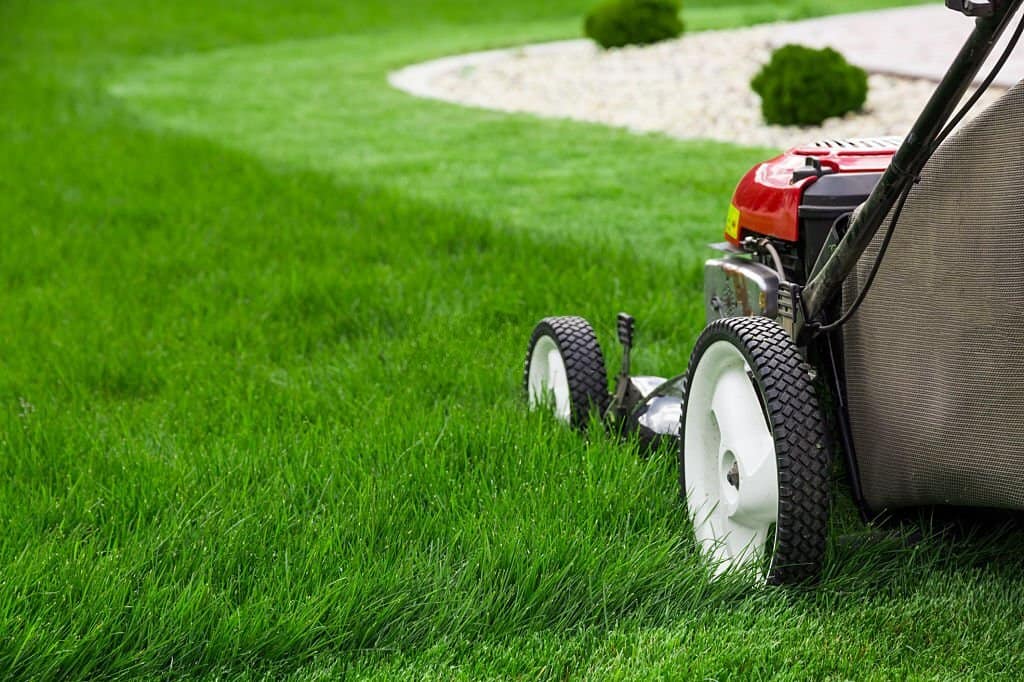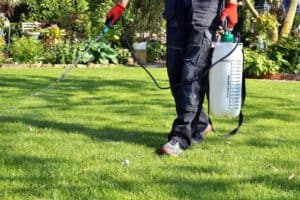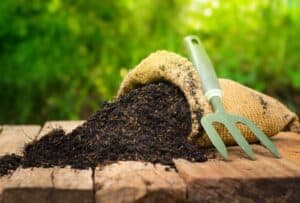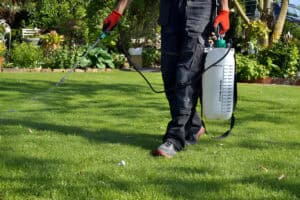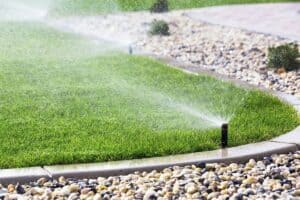Achieving those same perfect grass blades like most yards in your neighbourhood might have is not an easy task, especially for beginners.
Basics For The Lawn Care Beginner
Building stronger roots to promote new growth in your lawn is easier than you think if you follow these simple steps:
Routine weeding
There are two ways to remove weeds aside from mowing your lawn or back-breaking root pulling on a regular schedule. We can recommend natural or chemical-based spray applications, which have different uses for healthy lawns or unhealthy ones. In the case of the latter, non-selective types of weed killer will kill everything, including the weed seeds, grass, and other plants on your lawn, for you to restart and choose a new seed.
On the other hand, selective weed killers will only kill weeds and new weed seeds, and is best to enhance a somewhat beautiful lawn that already has some healthy grass.
Best time: Summer and warm temperatures
Improve soil quality
Using a garden rake, regularly dethatch your lawn to get rid of dried grass clippings as they trap nutrients in the soil and degrade its quality over time. This should help water seep into the soil much easier.
If you want to know the level of available nutrients in your soil ph, the general rule is to take some soil tests. That way, the soil test results will give you an idea of what is lacking.
After this, we recommend aerating as it removes the compact soil. Spring lawn care will help your lawn recover from a harsh winter and prepare itself for a scorching summer.
Best time: Spring and fall
Choose the right grass varieties and measure your lawn area
It’s good to have an idea of the area you’ll be working in so you can plan properly. Measuring the dimensions of your yard, in the beginning, gives you an idea of how you do the maintenance. You might discover that different areas vary in soil type.
Choose the most suitable grass species that fits the season in your region. There are three types of seed mix:
- warm season grasses
- cool season grasses
- transitional grasses
Try to put a considerable amount of seed on bald patches. Generally, warm-season grasses should be fertilized in the fall or winter, while cool-climate grasses should be treated in the spring or summer.
Use a goof-proof fertilizer
Organic fertilizers are an eco-friendly option to get the best results without hurting or burning anything.
Moreover, the bag rate indicates how much lawn area a bag of fertilizer can cover.
Little Rock Lawns will make sure your lawn is fertilized at the optimal rate.
Mow for growth
Take note of this principle: The more you mow, the healthier your lawn grows. Mowing your lawn frequently will make the weeds shorter. As a result, the turf grass underneath will have the chance to take over, leaving you with a thicker looking-lawn. Get on a consistent mowing schedule with Little Rock Lawns.
Water consistently
Properly caring for your lawn means frequent watering. It keeps lawns alive, especially during summer and winter. Keep watering but do not overwater until you can see a new grass seed. Usually, it takes a couple of weeks of moisture for the grass seed to thrive.
A cheap rain barrel system is recommended by specialists like us so that your water costs stay down and you have a consistent flow of natural precipitation.
Little Rock Lawns installs and maintains irrigation systems.
Lawn care for beginners
A new homeowner doesn’t need to say: “The grass is greener on the other side.” anymore. Now that you have learned the significant factors a healthy lawn requires, we hope you’re confident enough to handle your lawn care.

